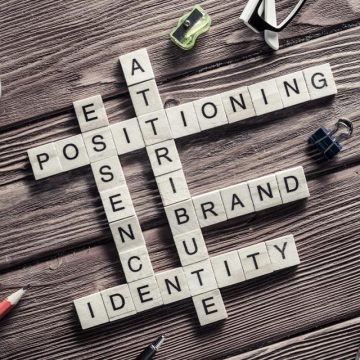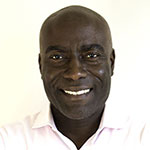When it comes to assessments, there are many options available to educators and providers in the early childhood space. Whether they are designed to understand school readiness or the quality of a teacher’s interactions with students, all of these assessments serve the same purpose: to improve learning and development outcomes for children during these crucial early years.
Early childhood assessments can offer powerful insights to help educators drive high-quality early childhood programs. Individual child assessment results create a common ground on which educators and families celebrate students’ strengths, identify any challenges, and understand their overall learning progress. Program leaders can use assessment data to examine the broader impact of their services on young learners’ and families’ well-being. And early childhood educators can use this data to refine classroom instruction.
However, the benefits of assessment in early childhood education don’t manifest without also building effective practices of ongoing, continuous improvement within a program. This is why high-quality, job-embedded professional development that supports the effective use of early childhood assessments is so crucial.
Where and why professional learning matters for early childhood assessments
To reap the benefits offered by early childhood assessments, program staff must invest in ongoing professional development for their teachers and coaches about these tools. More specifically, professional learning should concentrate on two areas:
- The appropriate and valid administration of the assessment with students;
- The interpretation and application of assessment results in instructional practices, practice-based coaching, and program evolution.
Let’s take a closer look at why professional development matters in both areas.
Accurately, authentically, and validly administering tests
The results of any test, even high-quality early childhood assessments, are only useful when they validly and accurately examine a student’s developmental progress. As the National Association for the Education of Young Children (NAEYC) describes, “[b]oth [summative and formative assessments] need to be conducted in ways that are developmentally, culturally, and linguistically responsive to authentically assess children’s learning.”
This means that programs must ensure their team is best prepared to implement assessment methods appropriately. In turn, staff have an obligation to ensure that their data — even informal observations — are free of both implicit and explicit bias.
High-quality professional development can help get educators started on the right foot with appropriate test administration. But a once-a-year workshop about proper methods of assessment is not enough to keep bias out of their results or guarantee proper implementation. Rather, programs must cultivate a culture of ongoing, continuous improvement through practices such as regular team reflection, assessment data review, and ongoing coaching. In this way, early childhood educators hold themselves and their programs accountable for administering accurate and authentic assessments for the benefit of all children.
Integrating data into decision-making and instructional shifts
Cognia recommends that early childhood educators “engage in analysis of [early childhood assessment] data multiple times throughout the year” to bolster positive student outcomes. By using comprehensive assessment data and other inputs in a regular review cycle, educators gain a more accurate picture of student learning progress and what improvements can be made.
However, data is merely the “what” in the puzzle to improve student learning outcomes — the “how” comes from a teacher’s interpretation of that data as well as what changes they make to students’ educational experiences.
Today especially, teachers are expected to know what to do with education data. But educators need to be shown how to use this and other information together to shift instructional practice in early childhood education settings. Even if an educator recognizes standardized assessment results for a student are just a single data point in time, it can be challenging to make sense of that data point and its implications for classroom practices.
Professional learning on how to review the results of an early childhood assessment can set both educators and coaches up for success by demonstrating effective data-informed decision-making. This training is key to ensuring the entire program team can better leverage the plethora of student information available to shift classroom practices and even programmatic structures. A 2017 white paper from The Ohio State University emphasizes the importance of professional learning on using early childhood assessments to “benefit [children through] instruction that is responsive to real-time information, and interventions that are tailored to their individual needs.”
As a bonus, coaches also benefit from learning how to integrate this data into their mentorship strategies with educators. By regularly reviewing early childhood assessment results, coaches can better understand the impact of a teacher’s instructional practices as they grow. And this insight helps them craft feedback to ensure the teachers they’re coaching continue to drive student growth, meet specific Head Start performance standards, and more.
In short, when educators are equipped with best practices for administering early childhood assessments and applying their results to instructional practices, everyone wins — kids and adults alike. So what does effective professional learning for high-quality early childhood assessments look like?
Three ways early childhood assessments impact professional development strategy
TORSH has partnered with hundreds of early childhood education programs across the country to uplevel their professional development and coaching strategies. Our team often sees these programs drive professional learning in three different ways around early childhood assessments:
- Providing targeted, individual coaching to educators on how to administer assessments, interpret the data, and use the data to guide instruction
- Creating professional learning communities focused on data review, supported by in-program exemplars to expand team expertise
- Identifying program-wide trends, including successes, improvements, and emergent opportunities
It is important to remember that, in all of these methods, early childhood assessment data is just one of many inputs that illustrate a child’s progress across the critical domains of development. NAEYC emphasizes that major decisions about a child’s learning experience or a program’s approach should include the voices of families in the process. They also highlight that such decisions must be made using multiple sources of information beyond early childhood assessment data. The more holistic a picture of a student, the more effective whole-child support becomes.
#1: Target individual coaching and professional training
Just as educators leverage early childhood assessments to guide a student’s learning experiences, coaches can also incorporate this data into their mentorship of teachers individually. While assessment results are certainly not the only data point illustrating how successful a teacher’s practices are, this data sparks powerful conversations between a coach and a coachee. These collaborations in turn produce actionable steps for a teacher to take toward improving student learning outcomes.
For example, let’s imagine a teacher and their coach reviewing interim assessment data. They notice that a handful of kids still struggle with managing their feelings, a key benchmark in kids’ emotional development. Both adults know how important it is for these students to reach this benchmark. With their coach’s support, the teacher establishes a short-term coaching goal for professional growth: implement at least two new instructional practices targeting this benchmark before the next interim test window.
For the next four weeks, this teacher uploads recordings from their classroom into TORSH Talent, concentrating on times when they work on social-emotional skills with these students. The coach reviews these videos ahead of their 1:1 meetings, leaving asynchronous time-stamped feedback for the teacher on each lesson recording that points out bright spots and opportunities for improvement.
At each meeting together, they then collaborate to identify ways that this teacher can continue to refine their instructional practices. For inspiration, they also watch an example video from their program’s TORSH Talent library in which an instructor teaches social-emotional skills to young students, including emotion regulation. When the time comes to once more administer the test, the teacher and coach review the latest results together, exploring the impact of these instructional practices on student learning.
Coaches can also coach educators about data practices themselves with early childhood assessments. Cognia shares that “[t]eachers who engage in analyzing and using assessment data to inform their curriculum, instruction and learning environments have a deeper understanding of child development and how to help individual children learn and develop.” By training teachers on practical ways to use assessment data to inform classroom practices, coaches ensure that teachers can more effectively respond to students’ needs and help them thrive.
#2: Use professional learning communities to harness and expand in-program expertise
Early childhood assessments can also surface examples of successful teaching that already exist within a program. Patterns in assessment data where certain benchmarks are met or exceeded can help unearth instructional practices that drive those successful results, and the educators who are effectively putting them to practice. This in-house expertise is invaluable and offers programs the opportunity to create informal professional learning opportunities outside of coaching or workshops.
Here’s how we see early childhood programs utilize TORSH Talent to encourage a culture of collaboration and growth through a professional learning community. Educators gather together once per month to examine interim assessment data within a single age group. During one review, they noticed that students working with two educators showed big growth in early language skills. These two teachers discussed their favorite teaching strategies for these skills with their colleagues and mention several new lessons they designed that seem to work well with kids. Later, each teacher the exemplary lesson plans and other teaching resources into their program’s TORSH Talent library so the entire team can take advantage of them for their own learning process.
In collaborative environments, educators enable each other to succeed by sharing best practices, learning from one another, and iterating together on strategies to improve student learning. The entire program wins when teams identify, celebrate, and spread exemplary teaching practices in action.
#3: Identify program-wide successes, improvements, and emergent opportunities
The benefits of assessment data can be most impactful at the program level. Formative, interim, and summative assessments all add to a team’s understanding of their services’ impact on child development outcomes. As described by the Massachusetts Department of Education, assessments are one of several vantage points that determine how well “a program meets the goals and needs of the children [it serves].” When program staff utilizes test data well, it can help them adjust program goals and funding to increase the value that their services bring to kids and child development outcomes.
As another example, let’s imagine a program team coming together to review the end-of-year aggregate results of their child assessment data. During the data review, they discover a concerning pattern among their PK3 students: a large number of kids have not reached a significant cognitive development benchmark. The team knows that improving a program-wide gap requires more than individual coaching to tackle, so they put together a comprehensive action plan.
The leadership team reallocates program funding to provide professional development on instructional practices for building that specific cognitive skill in preschoolers. They then coordinate with coaches to ensure all teachers receive feedback and guidance throughout the year with this benchmark in mind.
Eager to help, a subset of educators form a dedicated professional learning community on TORSH Talent. They meet regularly to discuss what teaching practices work, what doesn’t, and what changes the team can introduce for greater impact on this benchmark. As part of this collaborative learning process, they then create PK3 instructional plans and share them via TORSH Talent for the rest of the team to use in their own classrooms. Using a combination of formal assessment and informal observations, the leadership team regularly tracks their progress and is happy to see positive improvements in students’ cognitive development throughout the following program year.
Early childhood assessments can be powerful for guiding collective action aimed to deliver positive child outcomes. By coordinating multiple aligned professional learning approaches, tied together in part to patterns from assessment data, program leaders can create the momentum needed for broader impact and shifts in instructional practices across the team.
Assessments chart the course for effective teaching practices and improved child outcomes
Early childhood assessments are just one of a wide range of tools in an educator’s tool belt. Like a compass, these tests help a teacher chart their course for effective teaching practices. Coaching, training, and other forms of professional learning help steer the ship along the course, moving ever closer to its destination: improved learning outcomes for all young children. With intentional and ongoing professional development around early childhood assessments, educators can unlock the immense potential they offer to ensure every child thrives.
Support the Effective Use of Early Childhood Assessments with TORSH Talent
To support high-quality, job-embedded professional development for early childhood educators, TORSH provides a platform with an array of tools that early childhood programs can implement to improve teacher practice and student experience.
TORSH can help you transform your early childhood education program by:
- Increasing fidelity across professional learning and coaching — leading to improved educator practice and outcomes for children and their families
- Reducing costs of coaching through a hybrid or blended (live and/or virtual) model
See what other early childhood educators are saying about TORSH Talent and request a demo today.





